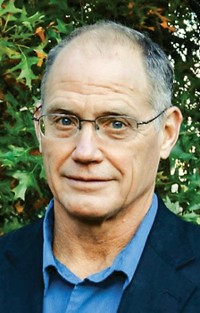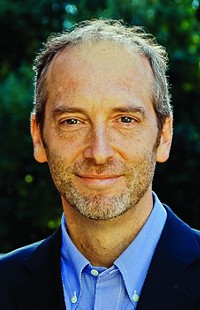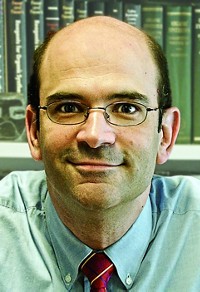Advertisement
Grab your lab coat. Let's get started
Welcome!
Welcome!
Create an account below to get 6 C&EN articles per month, receive newsletters and more - all free.
It seems this is your first time logging in online. Please enter the following information to continue.
As an ACS member you automatically get access to this site. All we need is few more details to create your reading experience.
Not you? Sign in with a different account.
Not you? Sign in with a different account.
ERROR 1
ERROR 1
ERROR 2
ERROR 2
ERROR 2
ERROR 2
ERROR 2
Password and Confirm password must match.
If you have an ACS member number, please enter it here so we can link this account to your membership. (optional)
ERROR 2
ACS values your privacy. By submitting your information, you are gaining access to C&EN and subscribing to our weekly newsletter. We use the information you provide to make your reading experience better, and we will never sell your data to third party members.
Synthesis
Elias J. Corey Award for Outstanding Original Contribution in Organic Synthesis by a Young Investigator
Recipients are honored for contributions of major significance to chemistry
by LINDA RABER
February 4, 2008
| A version of this story appeared in
Volume 86, Issue 5
Sponsored by the Pfizer Endowment Fund
Sometimes you can tell a winner right out of the starting gate. It was clear to many observers that F. Dean Toste was a going to be a star. His Ph.D. dissertation detailed the discovery of at least three new synthetic reactions, each of which was highlighted by a total synthesis of a significant biologically active target. The dissertation itself culminated in 23 publications in the most prestigious journals in chemistry. His Ph.D. adviser, Stanford University's Barry M. Trost, with whom he shared the 2002 ACS Nobel Laureate Signature Award for Graduate Education, calls him "the most impressive person to come out of my research group in several years."
Since joining the faculty at the University of California, Berkeley, in 2002, Toste, 36, has developed high-oxidation-state metal-oxo complexes as catalysts for nonoxidative transformations. For example, in a complete reversal of the traditional role of the metal-oxo π-bond, Toste was the first to achieve reductions of aldehydes, ketones, and imines with a Re(V)-dioxo complex that catalyzes reductions but not the expected oxidations. Toste has elucidated the novel mechanism of this catalytic reaction, which has tremendous synthetic potential.
Toste is also well-known for accelerating the development of Au(I)-catalyzed reactions, which include addition of enols to unactivated alkynes. This intramolecular reaction can be used to provide 5- and 6-exo-dig and 5-endo-dig cyclization products. At the time, this was one of only a few gold(I)-catalyzed reactions. In addition, he has developed a number of Au(I)-catalyzed cycloisomerization reactions, including the cyclization of 1,5-enynes to bicyclo[3.1.0]cyclohex-enes, the isomerization of 1,3,4-trienes to cyclopentadienes, and the enantioselective synthesis of cyclopentenones by the stereoselective rearrangement of vinyl propargyl esters.
He has developed cationic Au(I) clusters as catalysts for a number of rearrangements, including propargyl Claisen, Cope, and pinacol rearrangements. In many cases, Toste's work represents the first catalytic version of the rearrangement as well as the first use of a well-defined gold(I) cluster as a catalyst. His chiral phosphine gold(I) complexes have been used for diastereo- and enantioselective cyclopropanation of olefins. This represents not only a practical alternative to employing α-diazoesters as metal-carbene precursors, but it is also an early example of enantioselective catalysis using chiral gold(I) complexes.
In addition to the enantioselective Au(I)-catalyzed cyclopropanation, Toste has recently employed gold complexes as catalysts for enantioselective [2+2]-cycloaddition and dipolar cycloaddition reactions, as well as hydroamination and hydroalkoxylation of allenes. Most important for the latter reaction, the enantioselectivity resulted from the use of a chiral counterion (C&EN, July 30, 2007, page 17)—a strategy rarely successfully employed in asymmetric transition-metal catalysis
In addition to his research accomplishments, Toste is establishing himself as an outstanding teacher. Trost reports that his colleagues at UC Berkeley have told him "several of their chemistry honors students reported that the advanced organic course that Toste taught was the best course they had ever taken at Berkeley."
Toste was born on the Portuguese island of Terceira in the Azores, and raised in Canada. While at the University of Toronto, he majored in chemistry and biochemistry, graduating in 1993. He went on to obtain an M.Sc. in organic chemistry in 1995, and he then pursued a Ph.D. with Trost at Stanford, receiving his degree and a postdoctoral appointment with Robert H. Grubbs at California Institute of Technology in 2000.
Toste has received the Camille & Henry Dreyfus New Faculty Award (2002); Research Corporation's Research Innovation Award (2002); Boehringer Ingelheim New Faculty Award (2003); Amgen New Faculty Award (2003); GlaxoSmithKline Chemistry Scholar Award (2004); Eli Lilly Grantee Award (2004); DuPont Young Investigator Award (2004); Japan Society for the Promotion of Science Fellowship (2005); Bristol-Myers Squibb Unrestricted Grant in Synthetic Organic Chemistry (2005); National Science Foundation Faculty Early Career Development Program Award (2005); ACS Arthur C. Cope Scholar Award (2006); Novartis Young Investigator Award (2007); BASF Catalysis Award (2007); and the Organometallic Chemistry Directed toward Organic Synthesis Award (2007).
The award address will be presented before the Division of Organic Chemistry.






Join the conversation
Contact the reporter
Submit a Letter to the Editor for publication
Engage with us on Twitter